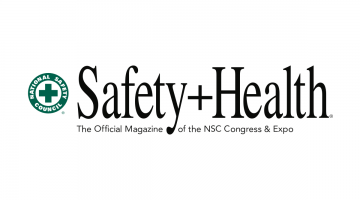COVID-19
COVID-19 was declared a global pandemic by the World Health Organization on March 11, 2020. In short order, the world of work changed dramatically in Canada. Non-essential businesses were locked down. Some workers lost their jobs; others were sent home to work. Despite protections, workers in sectors ranging from health care to transportation to food production and retail faced risk of infection, illness and even death. IWH research examines the impact of the pandemic on workers and workplaces, as well as the lessons for work and health policy-makers to prepare for the next pandemic.
Featured

Research Highlights
Mental health of Canadians who work from home no better or worse than those working outside the home
Canadian adults who work from home report the same levels of mental health, life satisfaction and stress as those who work on-site at a workplace, or at no fixed location (on the road). That’s according to a study of survey data from almost 25,000 Canadians in 2022.
Published: October 8, 2025

IWH Speaker Series
Refining estimates of occupational exposures and risk of workplace COVID-19 transmission
Published: January 16, 2024

IWH in the media
Study links inadequate PPE, COVID-19 infection controls to worker mental health issues
Feelings of anxiety and depression were highest among workers whose perceived personal protective equipment and infection control needs were not met during the early months of the COVID-19 pandemic, Safety + Health reports on a study by the Institute for Work & Health and Occupational Health Clinics for Ontario Workers.
Published: Safety + Health, December 2020
News release
News release
Workers who feel protected from COVID at work have better mental health, research suggests
Published: December 2020

IWH in the media
Workplaces are the new hotspot for COVID-19 outbreaks in Ontario
Whether it’s factories, food processing plants or construction sites, the latest numbers show heavily populated, essential workplaces are hotspots for COVID-19 in Ontario, Mark Carcasole reports, with quotes from Institute for Work & Health's Dr. Cameron Mustard.
Published: Global News, December 2020

At Work article
Rapid COVID-19 testing a potential game-changer in worker protection
Despite some limitations, rapid antigen detection tests may be important in the next phase of our response to this virus—including in work settings, writes IWH president Dr. Cam Mustard.
Published: November 2020

At Work article
COVID-19: Challenges and opportunities in OHS and social security highlighted at global session
In early October, the global community of OHS and social security policy-makers gathered virtually to discuss challenges and lessons learned as countries respond to the COVID-19 pandemic emergency. Despite the diversity of their experiences, many common themes emerged.
Published: November 2020
IWH Speaker Series
IWH Speaker Series
More than just COVID-19 prevention: Exploring the links between PPE, safe work protocols and workers' mental health
We have heard a lot about the importance of personal protective equipment (PPE) and infection control procedures (ICP) in reducing workplace COVID-19 transmission. A new study, conducted jointly with the Occupational Health Clinics for Ontario Workers (OHCOW), set out to explore their importance in protecting workers' mental health. In this presentation, Dr. Peter Smith shares results from two surveys, one conducted among health-care workers and the other among the broader Canadian workforce. The findings provide important insights into the additional benefits of adequate design and implementation of employer-based infection control practices—beyond reducing COVID-19 transmission.
Published: November 2020

At Work article
Adequacy of COVID infection control and PPE linked to workers’ mental health: study
Workers who felt safe at their physical work sites had better mental health than workers who felt workplace COVID-19 safety practices were inadequate, according to a study conducted by IWH and OHCOW at the start of the COVID-19 emergency.
Published: November 2020

At Work article
What research can do: Estimating the role of workplaces in COVID-19 transmissions
By using two sources of information in Ontario, we can estimate the incidence of COVID-19 infections that arose from workplace transmission during the first six months of the pandemic.
Published: August 2020

IWH in the media
More than 180 workers at this Toronto bakery got COVID-19 — but the public wasn’t informed. Why aren’t we being told about workplace outbreaks?
In April 2020, 184 employees at a Toronto bakery, many of them low-wage temporary workers, were diagnosed with COVID-19. One worker died. As Sara Mojtehedzadeh reports, the outbreak raises an urgent question. Why was the public never informed by authorities, when experts say workplaces can play a significant role in community transmission? IWH President Dr. Cam Mustard offers comments.
Published: Toronto Star, August 2020

At Work article
Anxiety levels among health-care workers during COVID-19 linked to inadequate PPE
Nearly six in 10 surveyed health-care workers in Canada reported anxiety levels surpassing an accepted threshold for clinical screening for the condition. Workers who reported more unmet PPE needs also reported higher levels of anxiety, according to a study by OHCOW.
Published: May 2020